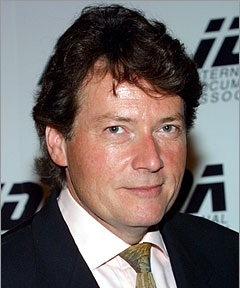Osama's Death Shifts Focus To Pakistan's Other Terrorists
10.05.2011 - 23:21
Source: SkyRporter.com
Today Western governments are justly heralding the strategic and symbolic significance of the military operation that cornered Osama bin Laden in his hideout north of Islamabad, at long last removing the al Qaeda leader from the global landscape of terror.
But in one respect the battlefield is now stalked by greater urgency: the imperative to compel Pakistan’s military establishment to cease its support for the Afghan terrorist fronts that are a lethal extension and force multiplier of al Qaeda’s campaign in Southwest Asia.
The suicide bombers and guerrilla fighters of the Haqqani, Hekmatyar and Afghan Taliban organizations are the driving force of the war in Afghanistan.
All are allied to al Qaeda to some degree, all are dispatched and commanded from Pakistani soil, and all are materially supported by Pakistan’s Inter-Services Intelligence branch, the ISI.
Unless and until the ISI ceases its proxy war in Afghanistan, the killing of one al Qaeda grey beard, regardless of his stature, will do little to douse the fires of terrorism – as President Obama and his generals fully realize.
Recently revealed U.S. diplomatic cables show that Washington has regarded the ISI as a threat for many years, while maintaining for American public consumption the fiction that Pakistan is a loyal ally.
One cable refers to a 2005 meeting in Quetta, Pakistan, chaired by Taliban chief Mullah Mohammed Omar.
"The meeting included high-level Taliban leaders,” the cable states, and “representatives from the Pakistani government and the Inter-Services Intelligence Directorate.”
Another cable, attaching the file of a veteran Afghan militant imprisoned at Guantanamo Bay, describes a meeting in 2006 that brought Pakistani officers together with senior al Qaeda and Taliban figures, as well as commanders of Gulbuddin Hekmatyar’s Hizbe Islami and Lashkar-e-Taiba, the group responsible for the 2008 Mumbai massacre.
The cable indicates that the meeting’s participants agreed to "increase terrorist operations in the Kapisa, Kunar, Laghman and Nangarhar provinces, including suicide bombings, mines, and assassinations.”
As reported here since 2007, the ISI’s backing of Afghan militants linked with al Qaeda has prolonged and deepened the war (see 9/11 Failures Haunt U.S. And Allies As Terrorism Spreads on page 14 of Recent Stories.)
Privately, U.S. and NATO commanders express outrage over Pakistani complicity, but the lack of resolve on the part of Western political leaders has allowed the wound to fester, even as the death toll among Afghan civilians and the coalition troops deployed to protect them continues to rise.
A number of U.S. diplomats have been exasperated by their nation’s impotence when confronted by the evidence.
Washington’s ambassador to Pakistan, Anne Patterson, wrote in a September 2009 cable that “no amount of money” will change the Pakistan military establishment’s covert aid for the militant groups.
“The only way to achieve a cessation of such support is to change the Pakistan government's own perception of its security requirements,” Patterson concluded, referring to perceived threats by Afghanistan and India to Islamabad's interests.
There can be little doubt that harsher means of persuasion to change those perceptions are now in order, considering that bin Laden was hiding out just a stone’s throw from the military academy that is Pakistan’s answer to West Point and Sandhurst.
Put simply, if world powers truly wish to combat terror in Afghanistan and elsewhere, they must start in Pakistan.
To do otherwise would be to repeat the worst blunder of the long bloody struggle since the 9/11 attacks: decamping to Iraq while Osama embellished the myth of his invincible sanctuary in Pakistan.
From there, bin Laden spawned new followers far and wide, simply by existing.
His death could well have the same effect, especially if his followers continue to be nurtured by Pakistan's military establishment.
Share This
Your comments on this
